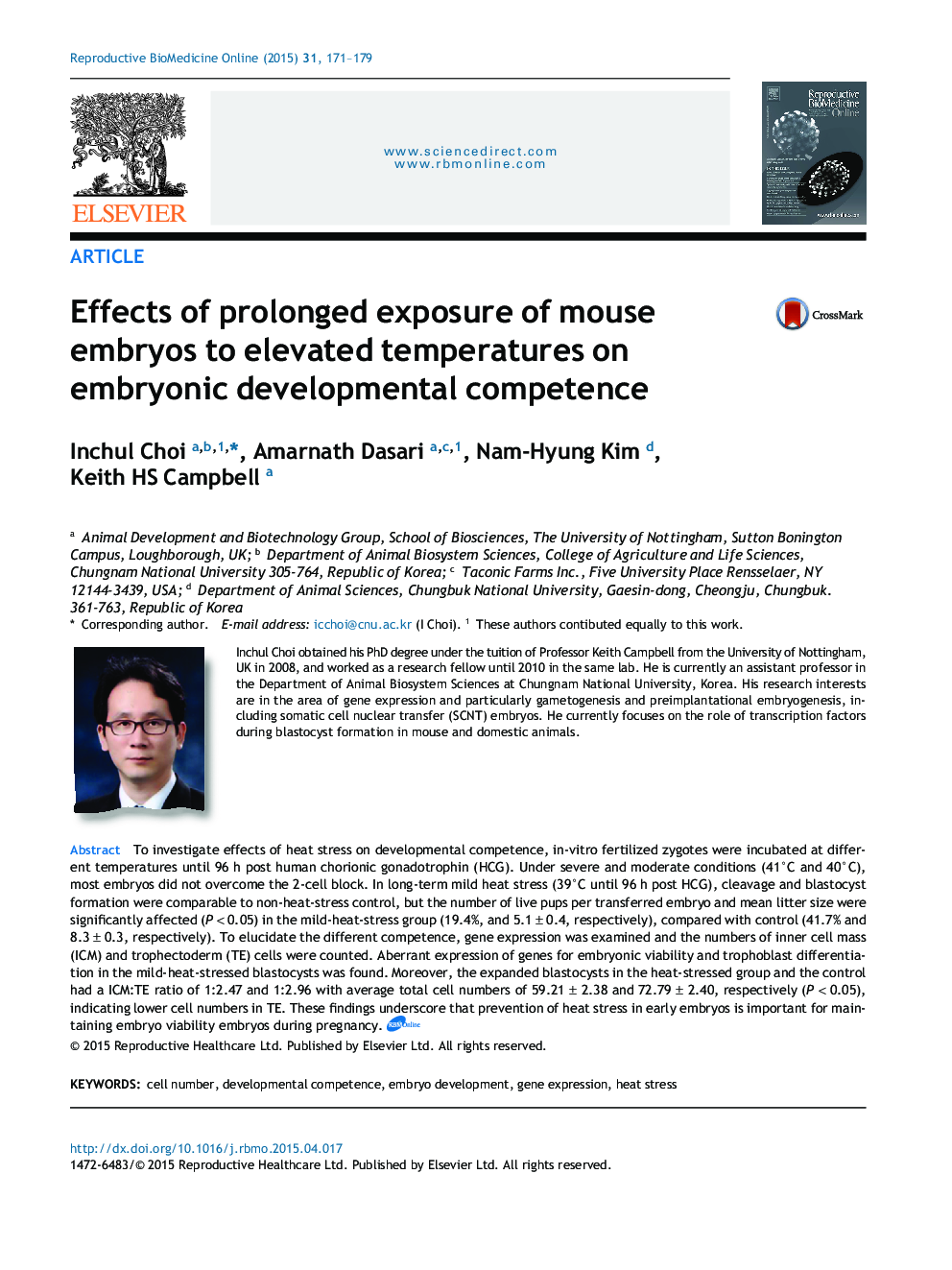| کد مقاله | کد نشریه | سال انتشار | مقاله انگلیسی | نسخه تمام متن |
|---|---|---|---|---|
| 6188741 | 1256692 | 2015 | 9 صفحه PDF | دانلود رایگان |
To investigate effects of heat stress on developmental competence, in-vitro fertilized zygotes were incubated at different temperatures until 96 h post human chorionic gonadotrophin (HCG). Under severe and moderate conditions (41°C and 40°C), most embryos did not overcome the 2-cell block. In long-term mild heat stress (39°C until 96 h post HCG), cleavage and blastocyst formation were comparable to non-heat-stress control, but the number of live pups per transferred embryo and mean litter size were significantly affected (P < 0.05) in the mild-heat-stress group (19.4%, and 5.1 ± 0.4, respectively), compared with control (41.7% and 8.3 ± 0.3, respectively). To elucidate the different competence, gene expression was examined and the numbers of inner cell mass (ICM) and trophectoderm (TE) cells were counted. Aberrant expression of genes for embryonic viability and trophoblast differentiation in the mild-heat-stressed blastocysts was found. Moreover, the expanded blastocysts in the heat-stressed group and the control had a ICM:TE ratio of 1:2.47 and 1:2.96 with average total cell numbers of 59.21 ± 2.38 and 72.79 ± 2.40, respectively (P < 0.05), indicating lower cell numbers in TE. These findings underscore that prevention of heat stress in early embryos is important for maintaining embryo viability embryos during pregnancy.
Journal: Reproductive BioMedicine Online - Volume 31, Issue 2, August 2015, Pages 171-179
